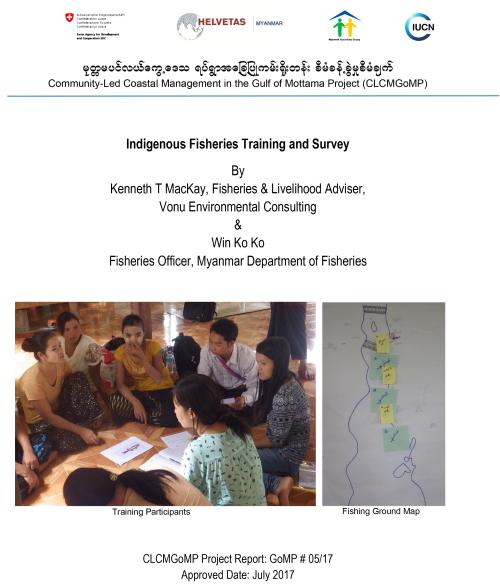At the initiation of the CLCMGoM Project there was little systematic information available on the fishery and ecology in the Gulf of Mottama (GoM). The scoping missions and baseline surveys carried out during the inception phase identified villages where coastal fishing was a major activity, identified fishing gears and prepared village seasonal calendars but they were not detailed enough to give a clear indication of fishing activity. Some additional data was added during the Value Chain Survey particularly on the local market system. However, at the start of the first phase in September 2015 there was not sufficient information available to allow development of fisheries co-management plans and have input to the Ramsar Management Plan. In order to increase the knowledge on fisheries and fish ecology the Fisheries and Livelihood Advisor, has work closely with project staff especially the Fisheries Officer, Mawlamyine University, and Myanmar Department of Fisheries staff to increase the knowledge.
The initial interviews with village fishers indicated that they held a substantial information on the fishery, the ecology, issues and current status. WorldFish has recently carried out a survey of local fishers in the Ayeyarwady Delta (Baran et al 2015) to collect information on migratory fish using a methodology developed in Cambodia for collecting local fisheries information. This approach offered a systematic approach to collecting local indigenous knowledge. It was decided to use this as a basis for training and subsequent data collection.
In order to assist with this Win Ko Ko, Department of Fisheries, Myanmar who was involved in the WorldFish project, was engaged as, a consultant to assist in the training and initial data collection. Training materials and questionnaires based on the WorldFish material was adapted to suit the GoM conditions, initially in English. This material was then translated into Myanmar by NAG staff. Annex 2 and 3 have both English & Myanmar training material and field survey questionnaire.
Published By:
Published Date:
